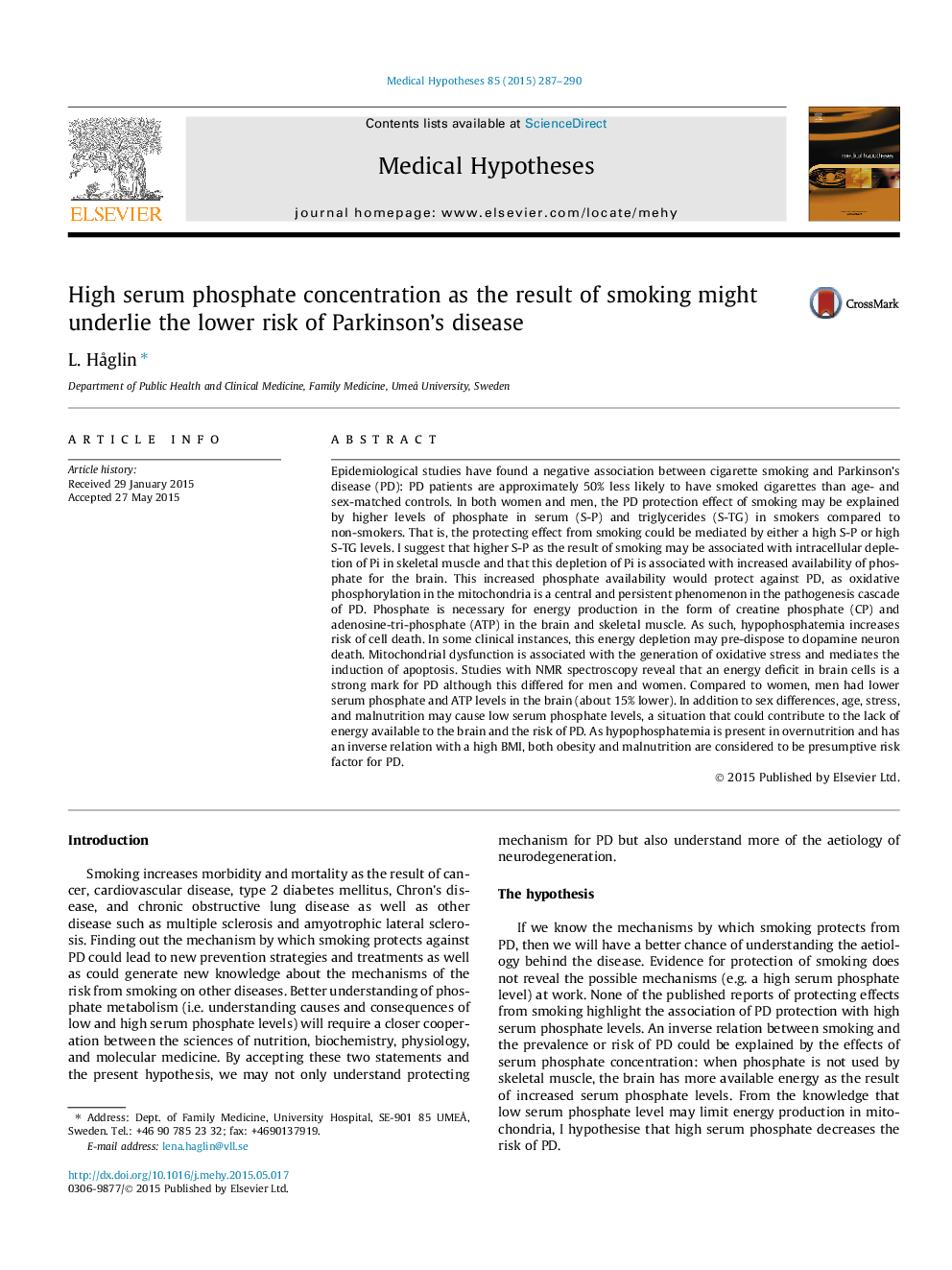| Article ID | Journal | Published Year | Pages | File Type |
|---|---|---|---|---|
| 5810952 | Medical Hypotheses | 2015 | 4 Pages |
Epidemiological studies have found a negative association between cigarette smoking and Parkinson's disease (PD): PD patients are approximately 50% less likely to have smoked cigarettes than age- and sex-matched controls. In both women and men, the PD protection effect of smoking may be explained by higher levels of phosphate in serum (S-P) and triglycerides (S-TG) in smokers compared to non-smokers. That is, the protecting effect from smoking could be mediated by either a high S-P or high S-TG levels. I suggest that higher S-P as the result of smoking may be associated with intracellular depletion of Pi in skeletal muscle and that this depletion of Pi is associated with increased availability of phosphate for the brain. This increased phosphate availability would protect against PD, as oxidative phosphorylation in the mitochondria is a central and persistent phenomenon in the pathogenesis cascade of PD. Phosphate is necessary for energy production in the form of creatine phosphate (CP) and adenosine-tri-phosphate (ATP) in the brain and skeletal muscle. As such, hypophosphatemia increases risk of cell death. In some clinical instances, this energy depletion may pre-dispose to dopamine neuron death. Mitochondrial dysfunction is associated with the generation of oxidative stress and mediates the induction of apoptosis. Studies with NMR spectroscopy reveal that an energy deficit in brain cells is a strong mark for PD although this differed for men and women. Compared to women, men had lower serum phosphate and ATP levels in the brain (about 15% lower). In addition to sex differences, age, stress, and malnutrition may cause low serum phosphate levels, a situation that could contribute to the lack of energy available to the brain and the risk of PD. As hypophosphatemia is present in overnutrition and has an inverse relation with a high BMI, both obesity and malnutrition are considered to be presumptive risk factor for PD.
